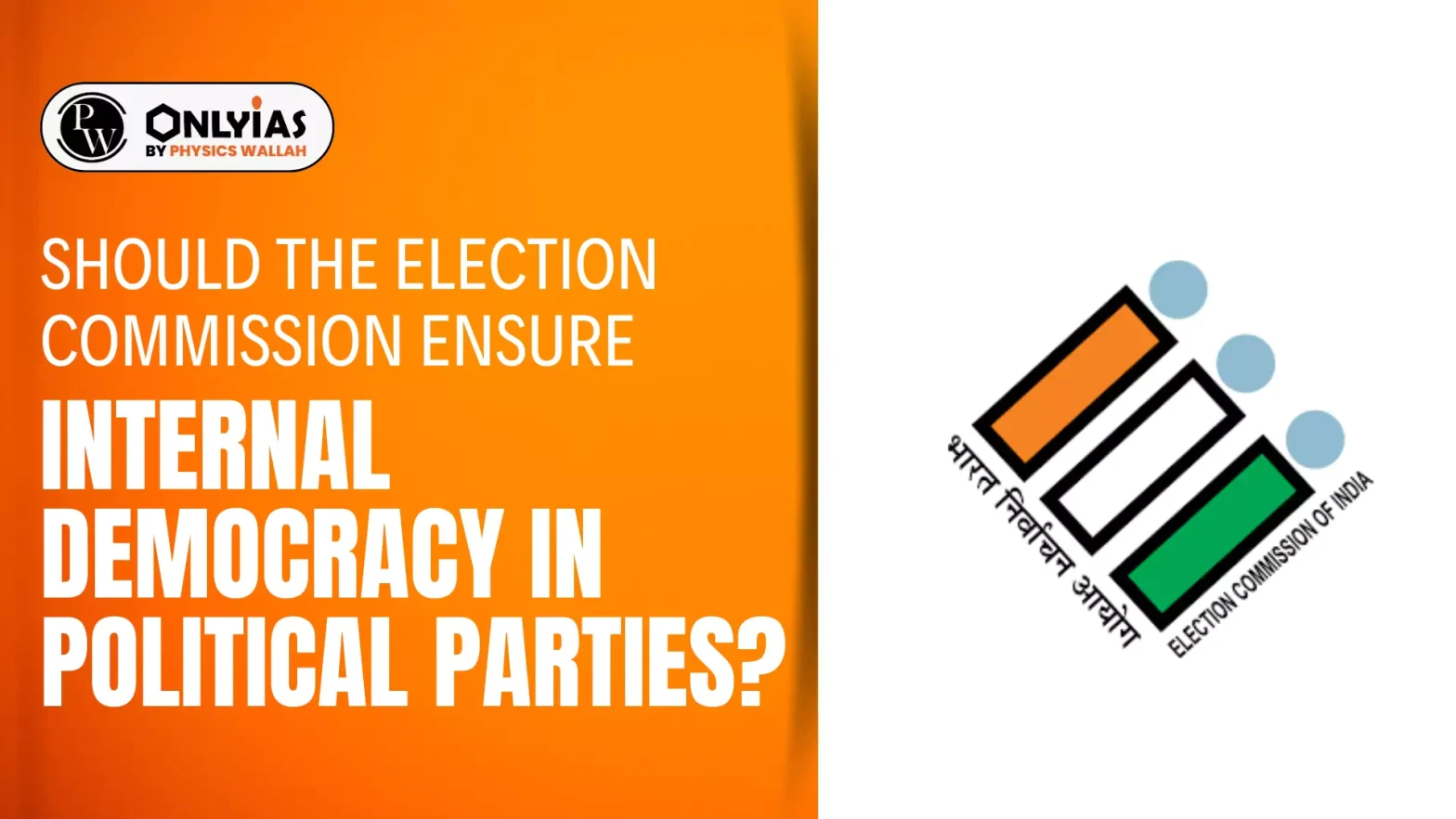In India’s diverse multi-party democracy, political parties often emphasise individual charisma over internal democratic structures. Ensuring these parties practise internal democracy is a critical challenge for the Election Commission
Importance of Internal Democracy in Political Parties
- Representation of Diverse Voices: This will prevent concentration of power among a few individuals in decision-making processes.
- Merit-Based Leadership: This will enhance transparency and accountability by challenging the dominance of entrenched family dynasties in political parties, even in the face of electoral failures.
- Grooming New Leaders: Encourages the emergence of new leaders and fresh talent by providing opportunities for discussions and evaluations before awarding party tickets, thus preventing stagnation in leadership.
- Strengthening Democratic Processes: This helps improve how decisions are made and encourages everyone to take part in governance. By involving citizens more, it builds trust in government and creates a stronger democracy.
- Fostering Innovation: Internal democracy encourages innovative ideas by allowing members to voice dissent against any injustice or wrongdoings, reducing the fear of repercussions and fostering a culture of creativity and change.
While the importance of internal democracy in political parties is clear, the role of the Election Commission (EC) in ensuring this democracy is debatable.
Enroll now for UPSC Online Course
Points in Favour of the Election Commission (EC) Ensuring Internal Democracy
- EC’s Oversight Function: As the registering authority for political parties, the EC is responsible for monitoring their operations to ensure compliance with their constitutions and bylaws, which often mandate internal elections.
- Maintaining Democratic Principles: The Election Commission (EC) plays a vital role in ensuring democratic processes at all levels of government.
- It upholds party constitutions, rejecting the YSR Congress Party’s attempt to make Jagan Mohan Reddy a permanent president, as this provision is disallowed by the party’s constitution.
Arguments Against the Election Commission (EC) Ensuring Internal Democracy
- Legal Limitations: The 2002 Supreme Court ruling restricts the EC’s authority to interfere in political processes, including internal party matters, limiting its ability to take action.
- Preserving EC’s Reputation: Intervening in internal affairs may compromise the EC’s reputation for impartiality, especially in light of accusations of bias(such as allegations that election dates favour certain parties etc.)
- Practical Challenges: Political parties can manipulate internal democracy rules by conducting managed elections with predetermined outcomes, making it difficult for the EC to enforce genuine internal democracy effectively.
- Voter Responsibility: Some experts contend that accountability for internal democracy should rest with voters.
- However, it is generally seen that voters often prioritise immediate benefits such as pensions or vote based on caste and religion, rather than the internal dynamics of political parties.
- Objectivity in Disputes: If the EC intervenes in internal disputes, maintaining objectivity based on evidence will become challenging.
- The current system of resolving party splits, often based on legislative majority (e.g., the Shiv Sena split), is perceived as more objective and less contentious, avoiding biases related to internal party democracy assessments.
Check Out UPSC Modules From PW Store
Conclusion
In India’s vibrant multi-party democracy, fostering internal democracy within political parties is essential for ensuring diverse representation and merit-based leadership. The Election Commission’s role in promoting this internal structure, while facing legal and practical challenges, is crucial for strengthening democratic principles and maintaining public trust in the electoral process.
![]() 4 Oct 2024
4 Oct 2024

